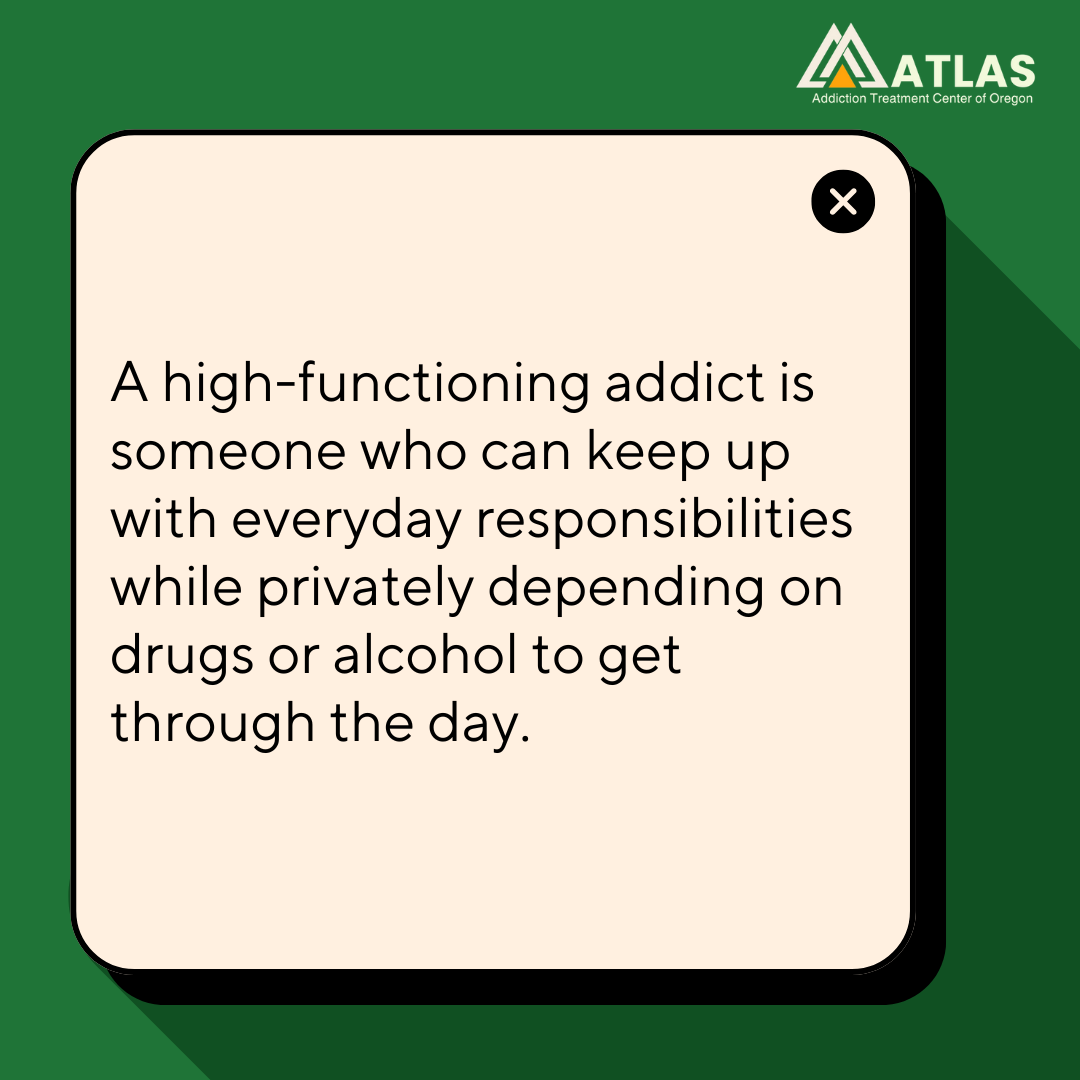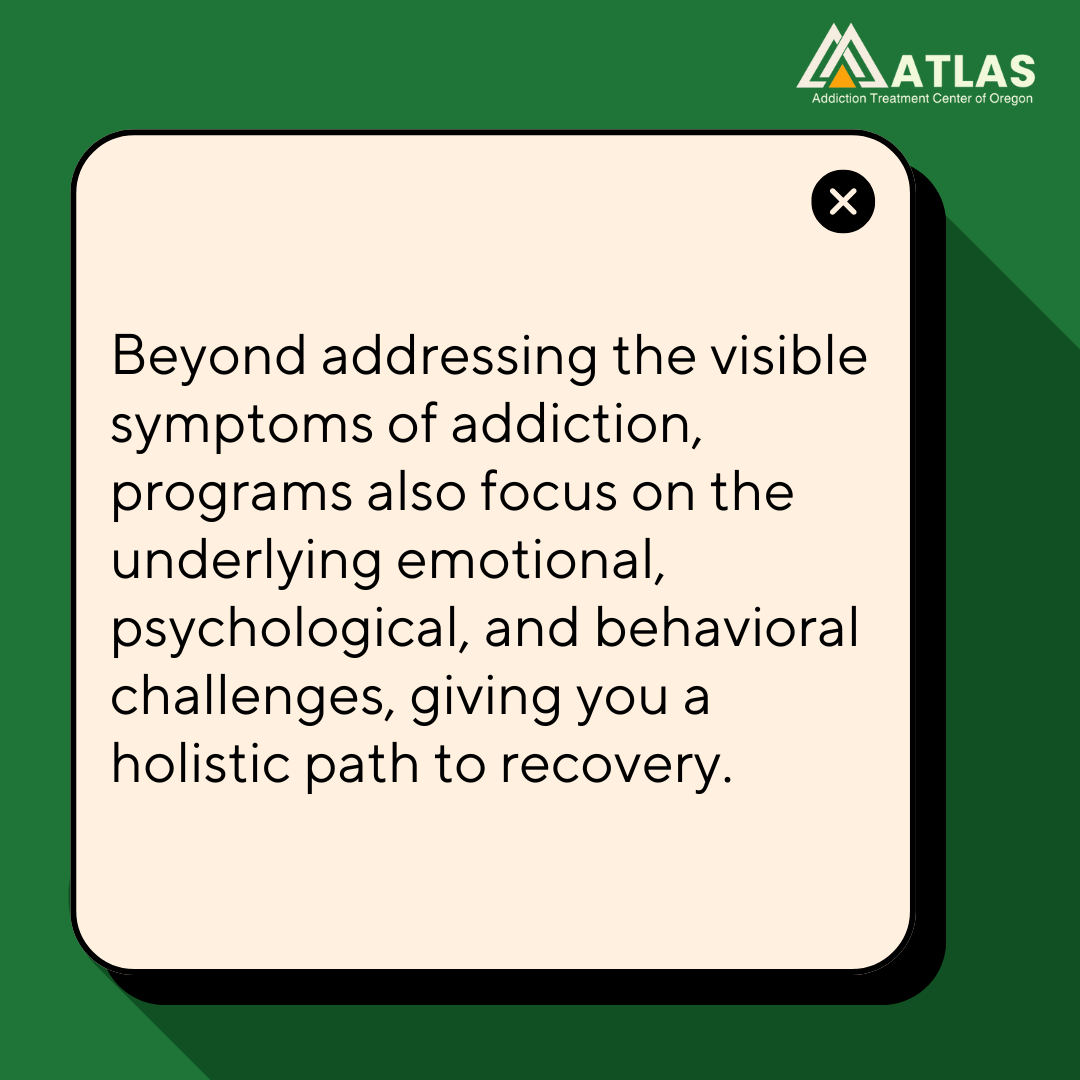
You might think you’ve got things under control: You’re keeping up with work, maintaining relationships, and handling responsibilities. However, underneath it all, the struggle is still there.
This is what’s known as being a high-functioning addict. And if you’re one, know that it’s common to hesitate to seek help when you feel like you’re managing fine. Still, addiction has a way of tightening its grip over time. And that’s where Oregon rehab programs come in.
These programs offer supportive, personalized care designed for people just like you — individuals who want to break free without losing the structure of their daily lives. With the right addiction treatment in Oregon, you can start building lasting recovery before things reach a breaking point.
Keep reading to learn why you still need to access addiction treatment Oregon (or elsewhere) and why being a high-functioning addict could be dangerous.

A high-functioning addict is someone who can keep up with everyday responsibilities while privately depending on drugs or alcohol to get through the day. You might hold a steady job, care for your family, and appear composed to others yet still struggle silently.
Many people in this position eventually realize that keeping it all together comes at a growing personal cost, leading them to explore drug treatment centers in Oregon for structured support.
Behind the routine, substance use often becomes a coping mechanism for stress, anxiety, or burnout. What starts as occasional use can quietly trigger addiction, making it harder to stop without help. Waiting for things to completely fall apart isn’t necessary or wise. Addressing the problem early can protect your health, relationships, and future before addiction takes a deeper hold.

Why High-Functioning Addiction Is Dangerous
Even if you’re managing a career, family, or social obligations, being a high-functioning addict carries serious hidden dangers. Recognizing the risks early can help you take action before your substance use escalates.
Note that high-functioning addiction can silently damage your health. Substance use strains the liver, heart, and nervous system, leading to long-term complications that often go unnoticed until they become serious.
Addiction gradually affects how you think, feel, and connect with others. You may notice more irritability, anxiety, or emotional distance, even if you try to hide it. Over time, this can cloud judgment and strain relationships that once felt solid.
High-functioning addiction often feels stable until it’s not. A single event, such as an overdose, DUI, or job loss, can turn everything upside down.
All these risks are big reasons why early intervention through Oregon rehab programs is critical. These programs offer specialized opioid, fentanyl, and benzodiazepine addiction treatment in Oregon, giving you the professional care and support to reduce risk and regain control of your life.
The Role of Oregon Rehab Programs
Oregon rehab programs are designed to support people like you who may seem to have everything together but are struggling with hidden addiction.
These centers offer tailored approaches, including outpatient and inpatient care, therapy, and peer support groups, so you get the right level of care for your situation. Beyond addressing the visible symptoms of addiction, programs also focus on the underlying emotional, psychological, and behavioral challenges, giving you a holistic path to recovery.

Oregon offers specialized programs to address a wide range of substance use challenges.
Fentanyl addiction treatment is particularly important due to the sharp rise in opioid misuse across the state. Between 2020 and 2022, fatal overdoses involving illicitly manufactured fentanyl nearly quadrupled, increasing from 223 to 843 deaths. If you or a loved one is struggling with opioid use, these programs provide targeted care to help you safely detox and begin recovery.
Benzodiazepine addiction treatment, on the other hand, focuses on the dangers of dependence on prescribed medications. Even when taken as directed, these drugs can create serious physical and psychological reliance. Treatment programs combine medical supervision, tapering strategies, and therapy to help you regain control while minimizing withdrawal risks.
Many Oregon rehab programs also offer dual diagnosis support. If you have co-occurring mental health conditions like anxiety or depression, integrated treatment ensures that both your substance use and mental health needs are addressed simultaneously. By tackling these challenges together, you improve your chances of lasting recovery.
Knowing when to reach out can be challenging, especially if you appear to be functioning well. Rehab admission and support from Oregon rehab programs can help you regain control before the consequences escalate.
Watch for these warning signs:
It’s easy to believe that rehab is only for people who have “hit rock bottom,” but that’s a misconception. Seeking help early doesn’t mean you’ve failed. Instead, it means you’re taking control before addiction disrupts more of your life.
Many high-functioning individuals have found success in recovery, maintaining careers, relationships, and personal goals while receiving the support they need. Their stories show that you don’t have to wait for a crisis to benefit from treatment.
Early intervention through addiction treatment Oregon programs, including options like inpatient, outpatient, and partial hospitalization programs, can protect your health, career, and future. Getting help now and searching for trusted addiction treatment centers covered by OHP or the Oregon Health Plan increases your chances of lasting sobriety and stability.

Being a “high-functioning” addict doesn’t mean you’re immune to the risks of substance use. Even if you’re maintaining a job, relationships, or responsibilities, hidden struggles can quietly escalate, putting your health and future in jeopardy. Reaching out to Oregon rehab programs before things spiral gives you a structured path toward recovery, support, and safety.
Recovery is possible, and it offers freedom, clarity, and long-term stability. The first step is getting in touch with a trusted name in the industry, like Atlas Treatment Center, where tailored programs and experienced staff can guide you toward lasting sobriety. Contact us today!

Author
Henna is a content strategist with over 5 years of experience in behavioral health marketing. She specializes in creating informed, compassionate content for addiction treatment centers, using her deep understanding of the industry to educate, engage, and support individuals seeking recovery.


.webp)
Don't let addiction define your future. We're ready to support you every step of the way. Reach out to us for a free, confidential assessment.

